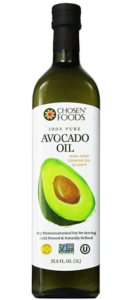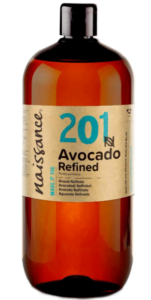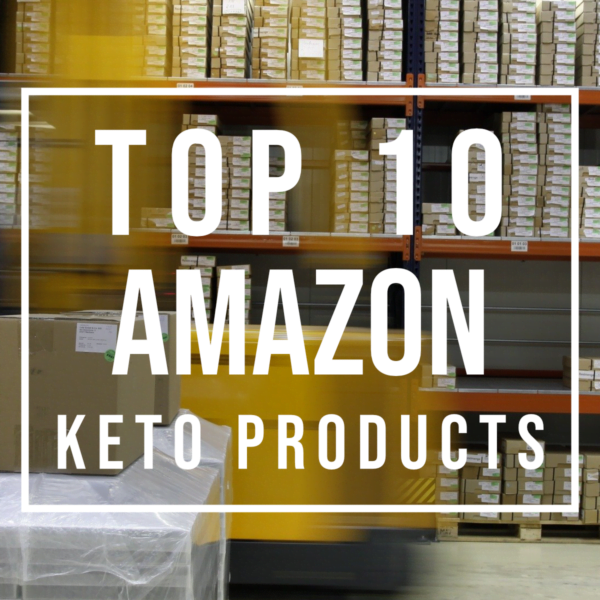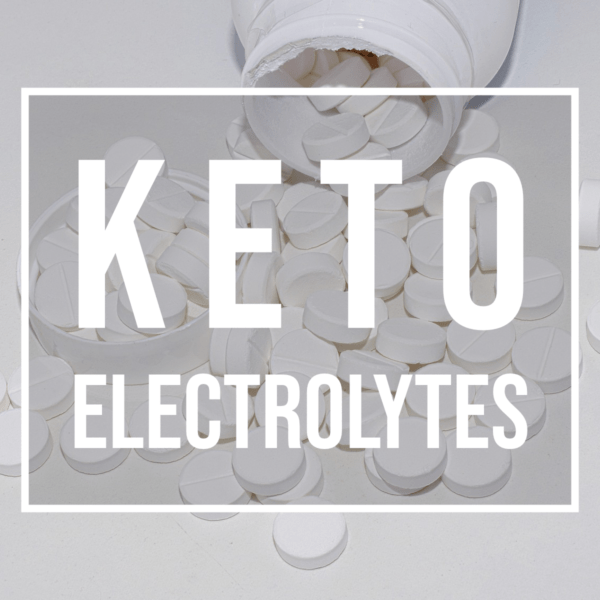Best keto cooking oils to use and avoid
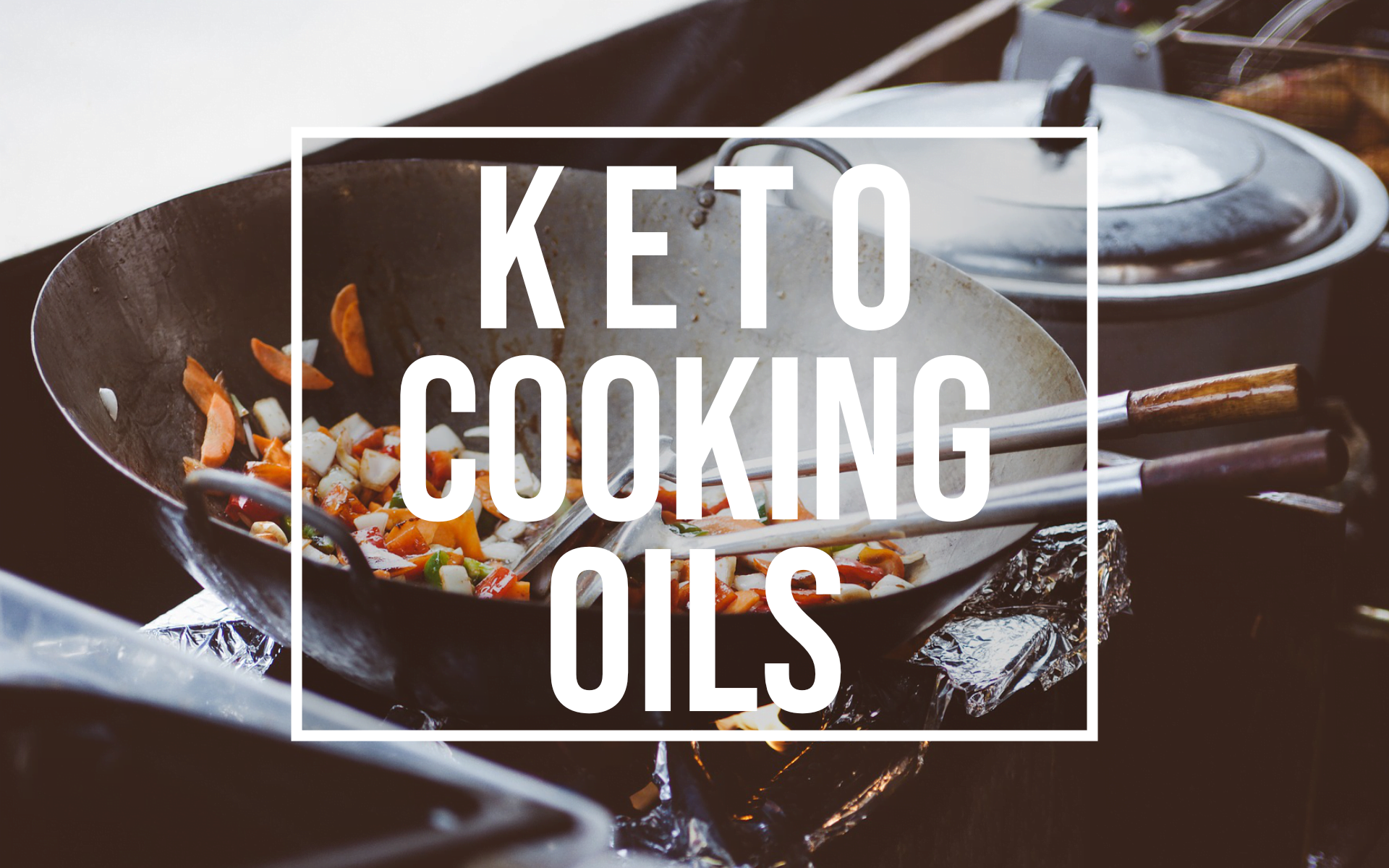
The best keto cooking oil is one that can withstand high temperatures (smoking point), is versatile, and full of healthy fats. There are quite a few oils that fulfil these criteria (and some that don’t), so let’s take a closer look at the best keto cooking oils.
What is an oil smoke point?

It’s basically the temperature at which the oil starts smoking. Every oil has a different smoke point and for frying/cooking, you generally want one that is high.
Even with high smoke point oils, smoking can still occur in high-temperature cooking like stir-frying in a wok. Generally, that’s not too bad but you want to be careful.
Smoking oil means that the oil is breaking down and can release chemicals that give food an undesirable burnt or bitter flavour. It can also release harmful compounds that can impact your health.
Typical smoking points of fats & oils
- Butter – 120-150°C
- Coconut Oil (Extra Virgin) – 177°C
- Sesame Oil – 177°C
- Lard – 188°C
- Olive Oil (Extra Virgin) – 191°C
- Canola Oil – 204°C
- Vegetable Oil – 205°C
- Peanut Oil – 230°C
- Coconut Oil (Refined) – 232°C
- Ghee – 252°C
- Avocado Oil – 270°C
The focus of this article is going to be on cooking oils and not fats. However, for a keto lifestyle butter, lard and ghee are great fats to cook with and should be heavily considered when cooking.
You can view a more complete list of the smoke point of other cooking oils here.
Virgin or raw vs refined oils
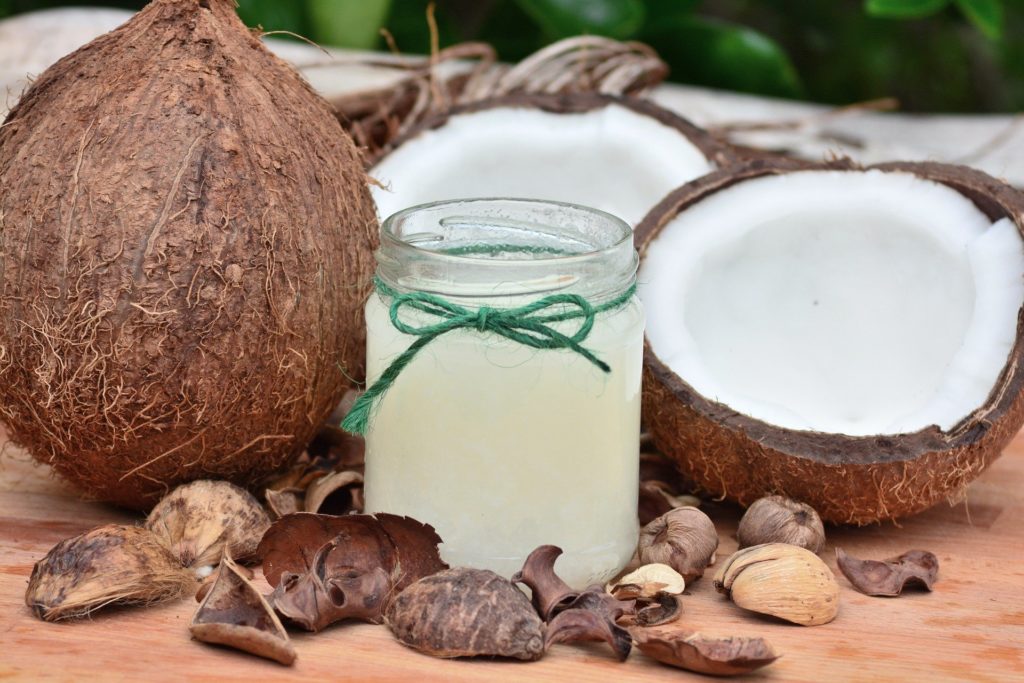
Virgin or raw oils are oils that are bottled immediately after being extracted or pressed. These oils tend to retain their unique flavours, minerals and nutrient and impart them on to the dish. However, they tend to have lower smoking points and shorter shelf life.
Raw oils are perfect for low heat cooking or for raw recipes like salad dressings, sauces, and drizzles. Some of the most popular raw oils are Extra virgin olive, walnut, flaxseed, extra virgin coconut, and sesame oil.
On the other hand, refined oils are thoroughly processed through filtering, bleaching and heating to remove compounds that breakdown virgin oils. The result is often an oil that offers a neutral taste, high smoke point and long shelf life. The most popular types in the UK are vegetable oil (like sunflower), peanut, and canola oil.
Best cooking oils for Keto
Now that we know what to look for in a good keto cooking oil, let’s take a look at some of the best.
All the oils mentioned below are refined oils, meaning that they have been processed to have a neutral taste, high smoke point and long shelf live. Their raw/virgin/extra virgin counterparts are great keto oils, but not necessarily for high-temperature cooking.
Coconut oil
Smoke Point: 232°C
Uses: Frying, baking, greasing pans and general cooking
Coconut oil is high in saturated fat, namely a fat called medium-chain triglycerides (MCTs). If you’re at least familiar with the keto diet then you’ve probably heard about that fat before, it’s great for raising ketone levels. Not to mention, it goes great in some butter coffee (recipe)!
It can be a bit expensive but buying in bulk helps to bring the cost down. Most UK supermarkets now stock it and you can even buy it in kilogram tubs. It is also great in replacing butter in most recipes.
Recommendations
Olive oil
Smoke Point: 199-243°C
Uses: Frying, baking and general cooking
Refined olive oil has a relatively high smoking point that varies from batch to batch. It’s readily available in all UK stores and is priced competitively. All of this makes it one of the best keto cooking oils and should be found in every keto kitchen!
Watch out for blends which usually consist of tiny amounts of olive oil mixed with vegetable oil. It may be cheap but you don’t really want to be consuming that all the time. Check out the avoid section below for more information.
You should also have a bottle (or two) of extra virgin olive oil in your cupboard. This can be used in dressings and even in low-temperature cooking. It’s full of antioxidants and high in oleic acid (OA), a monounsaturated fat providing many health benefits.
Recommendations
Avocado oil
Smoke Point: 270°C
Uses: Deep frying, frying, baking and general cooking
Avocado oil has one of the highest smoke points of all the oils and because it’s refined it doesn’t impart any particular flavours to your dishes.
However, it ain’t cheap and can be difficult to find in a lot of UK stores. Your best bet is to buy it online and use sparingly.
Surprisingly, the bulk of avocado oil that is manufactured today is used in cosmetics but its use in the food industry is steadily rising. Hopefully, that will lead to a price decrease (someday).
Lastly, it’s just a great all-rounder as it’s high in MUFAs, vitamin E and antioxidants. You can even choose to pick up unrefined (virgin) oil, as that also has a high smoking point but a shorter shelf life and will impart some flavour.
Recommendations
Honourable mention – Animal fats
Butter, Ghee, Lard and other animal fats
Though not classed as keto cooking oils, animal fats are great to cook with, are extremely cheap, and readily available. They are composed of the same fatty acids as plant-based oils but consist of more saturated fats, making them solid at room temperature.
Butter
Oh, what a wonderful flavour! Perfect in most dishes and imparts a flavour that no plant-based oil can mimic. However, it has a relatively low smoking point (150°C) at which it will burn.
Check out our best keto butter guide for product recommendations.
Ghee
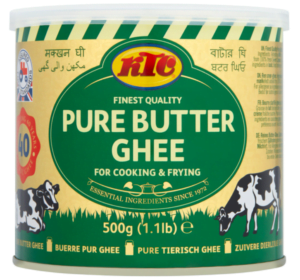
Otherwise known as clarified butter. Essentially, it’s a butter with its protein and milk sugars filtered out. Resulting in cooking fat that has a high smoking point (250°C) but still has that buttery flavour! You can buy it in big jars/cans in most UK stores.
Recommendations
East End Pure Butter Ghee – Amazon, Asda, Iceland, Sainsbury’s, Tesco, Waitrose
KTC Butter Ghee – Amazon (500g / 2kg), Asda, Morrisons, Sainsbury’s
Note – watch out for ghee blends, brands like Carotino are not pure ghee and contain palm oil as the primary fat source. They are usually cheaper but not recommended for keto.
Lard
A very cheap fat that is obtained by rendering the fatty tissue of a pig. Tallow on the other hand is derived from cattle or sheep.
Popular in many dishes and readily available in all stores. Most lard doesn’t have any taste and is rather odourless, making it perfect for keto cooking.
Cooking oils to avoid on Keto

It’s best to avoid most seed oils on the keto diet, they tend to be high in omega-6 fatty acids. Oils like Canola and Sunflower oxidise very easily and with high heat cooking this accelerates the process. There is some evidence that long term effects of oil oxidation can cause inflammation and perhaps even free radicals.
The jury is very much still divided on the issue of vegetable oils but it’s best to opt for more natural, less processed oils where possible.
This is not an exhaustive list but try and avoid the following vegetable oils in your keto diet due to their high omega-6 content.
Sunflower Oil
Sunflower oil is the non-volatile oil pressed from the seeds of sunflower.
Taken from Wikipedia

Rapeseed Oil
Rapeseed oil is one of the oldest known vegetable oils and commonly branded as vegetable oil.
Taken from Wikipedia

Corn oil
Corn oil is oil extracted from the germ of corn. Its main use is in cooking, where its high smoke point makes refined corn oil a valuable frying oil.
Taken from Wikipedia

Grapeseed Oil
Grape seed oil is a vegetable oil derived from the seeds of grapes. A by-product of the winemaking industry, it is typically used for edible applications.
Taken from Wikipedia
Soybean Oil
Not common in the UK (at the time of writing).
Soybean oil is a vegetable oil extracted from the seeds of the soybean (Glycine max).
Taken from Wikipedia





